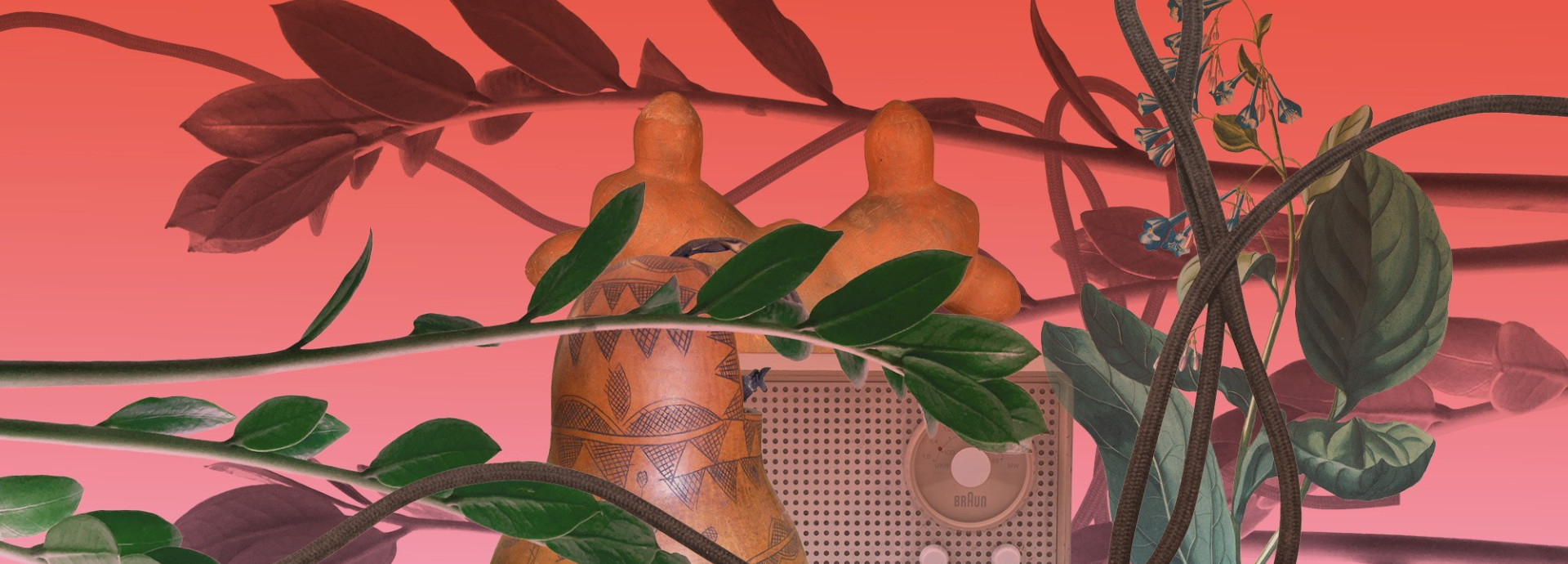
Ecological Entanglements across Collections - Plant Lives and Beyond - Day 1
Day one will open the discussions with a critical reassessment of environmental thought as inseparable from religious and political constellations, racial and colonial dominations, the arts, the history of science, and plant biology—reflected in Discourses, Imaginaries, and Common Sense.
Forschungscampus Dahlem, Foyer
10:00 | Welcome & Introduction to the Academy by KHI & SPK
Barbara Göbel (Director, Ibero-Amerikanisches Institut, SPK, Berlin) and Hannah Baader (4_Lab/Kunsthistorisches Institut in Florenz, MPI)
WORKSHOP
Ecological Entanglements and Aesthetic Practices: Reassessing Discourses, Imaginations, and Common Sense
10:15 | Introduction
Hannah Baader (Kunsthistorisches Institut in Florenz, MPI)
10:30 | Reconfiguring the Botanical Gaze: Fighting Plant Blindness to Embrace Rewilding
Giovanni Aloi (School of the Art Institute of Chicago), Moderation and Discussion: Hannah Baader (Kunsthistorisches Institut in Florenz, MPI)
11:15 | Maya Cloud Forests and Muybridge Photographs: A Study of Root Memory and the Optical Unconscious
Anna Blume (State University of New York, FIT), Moderation and Discussion: Julia Voss (Deutsches Historisches Museum, Berlin/Leuphana University, Lüneburg)
13:30 | The Empty Lot: Of Remediating Brownfields and Resisting Vegetation
Peter J. Schneemann (Universität Bern), Moderation and Discussion: Linn Burchert (Zentralinstitut für Kunstgeschichte, Munich)
14:15 | Aesthetic Impact Assessment, 1949/1969
Etienne Benson (Max PIanck Institute for the History of Science, Berlin), Moderation and Discussion: Gerhard Wolf (Kunsthistorisches Institut in Florenz, MPI)
16:00 | PRESENTATION: Curating and Creating Relations between Lived Worlds: A Practice-Oriented Methodology for Museum Engagements with Indigenous Communities from Amazonia
Thiago da Costa Oliveira (Research Fellow Ethnologisches Museum, Berlin)
Moderation: Patricia Rahemipour (Institut für Museumsforschung, Berlin)
17:00 | LECTURE: Ecological Wisdom for a Collective Future: If We Listen, Plants Will Teach Us
Monica Gagliano (Southern Cross University, Lismore), Moderation and Discussion: Julia Voss (Deutsches Historisches Museum, Berlin/Leuphana Universität, Lüneburg)
18: 00 | Reception
Welcome by Hermann Parzinger (President, Stiftung Preußischer Kulturbesitz)
Forschungscampus Dahlem, Lecture Hall
19: 00 | LECTURE PERFORMANCE: Holding Patterns; An Archive of Atmospheres
An artistic research-exchange project made by artists and academics Kate Donovan (Berlin) and Ella Finer (London) and in collaboration with:
Maurice Mengel (Head of Media, Ethnologisches Museum and Museum für Asiatische Kunst); Albrecht Wiedmann (Curator, Berliner Phonogramm-Archiv, Ethnologisches Museum); Ludwig Luthardt (Museum für Naturkunde), Berlin. Richard Sabin (Natural History Museum); Dan Hall (Natural History Museum); Michele Banal (British Library Sound Archive), London. With the use of streamboxes by Soundcamp and the live technical support of Philipp Phildius.
In aviation, a holding pattern keeps a plane moving within a defined flight path. A way of managing air traffic—large objects which cannot suspend motion in the sky—this is as close to stillness as the atmosphere above us allows. A holding pattern is an ambivalent thing, a way of keeping an object in motion while contained. What does the pattern of containment do, what moves can the object make? These are metaphorical conditions we are interested in within the archives and their atmospheres that we have moved through: the management and containment of objects in motion; how objects are held and how they move (or do not); how holding can be a managerial or administrative practice, one of ownership and possession, and also of tender care-taking, a desire to pass something on well enough. Maybe holding is complexly always a mix of all at once. From the giant scale of holding a plane in repeated movement to the intimate scale of holding a stone, a seed, a bone, a tape, a living moth— how to hold on to something and attend to the holding: the patterns and intricate relations of motion and stasis; what works and what needs to break in the “holding patterns” to make way for new intent and direction. To hold as a way of allowing movement into the future, not to land but to continue the flight.
The international Research and Fellowship Program "4A Lab: Art Histories, Archaeologies, Anthropologies, Aesthetics" is a cooperation between the Kunsthistorisches Institut in Florenz – Max-Planck-Institut and the Stiftung Preußischer Kulturbesitz.
- Registration only required for online participation.
- Wheelchair accessible.
- Registration only required for online participation.
- Wheelchair accessible.